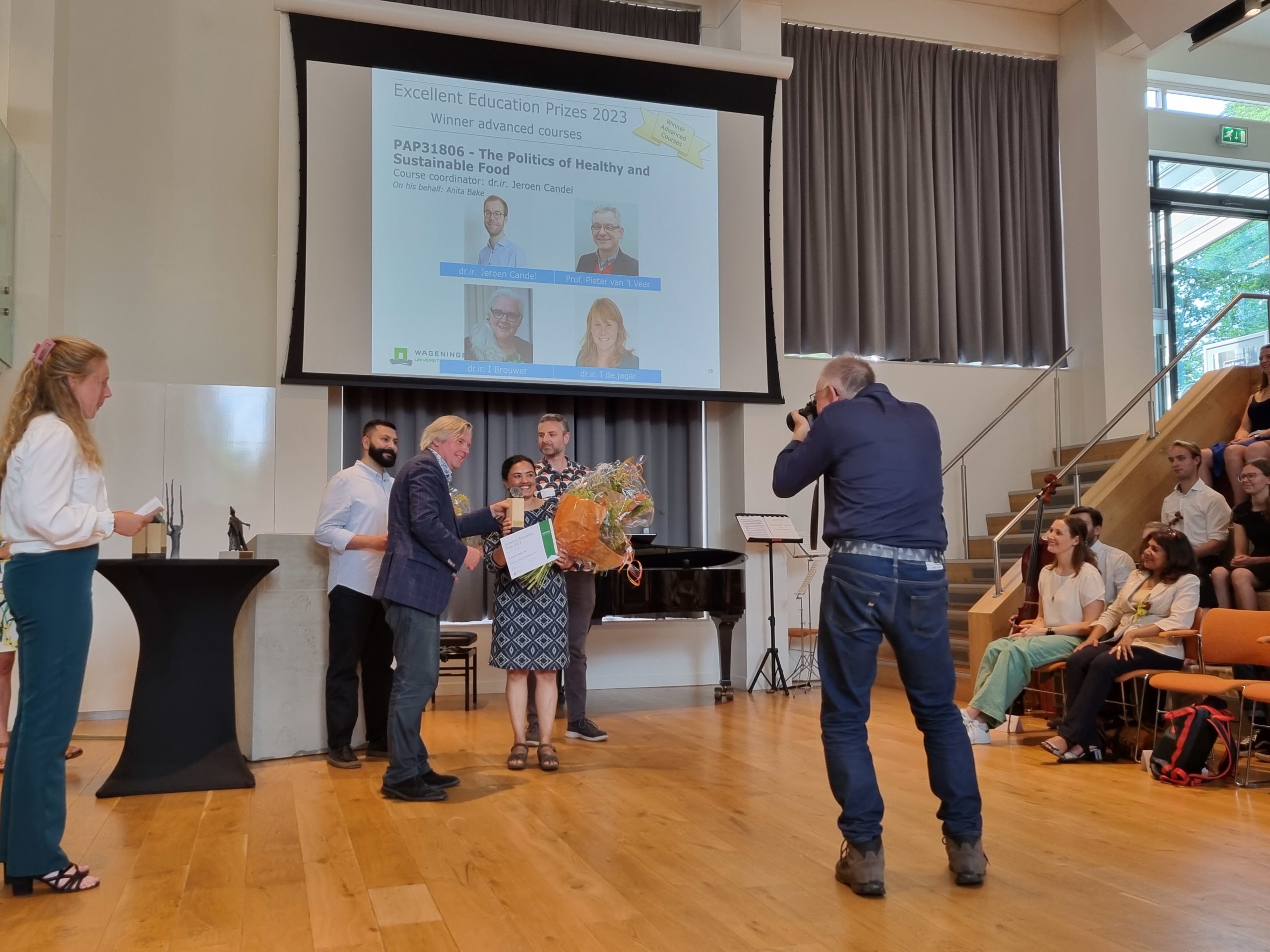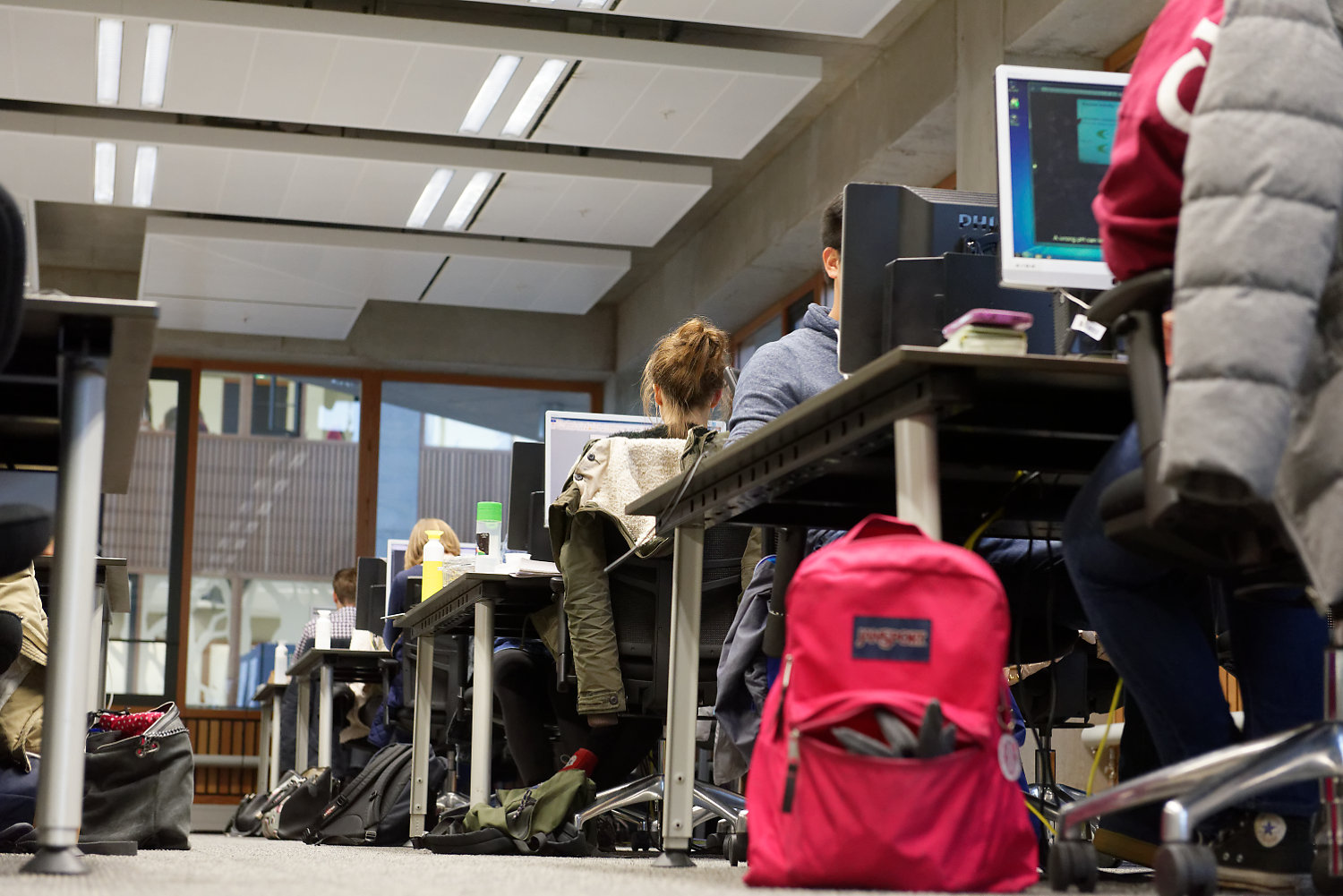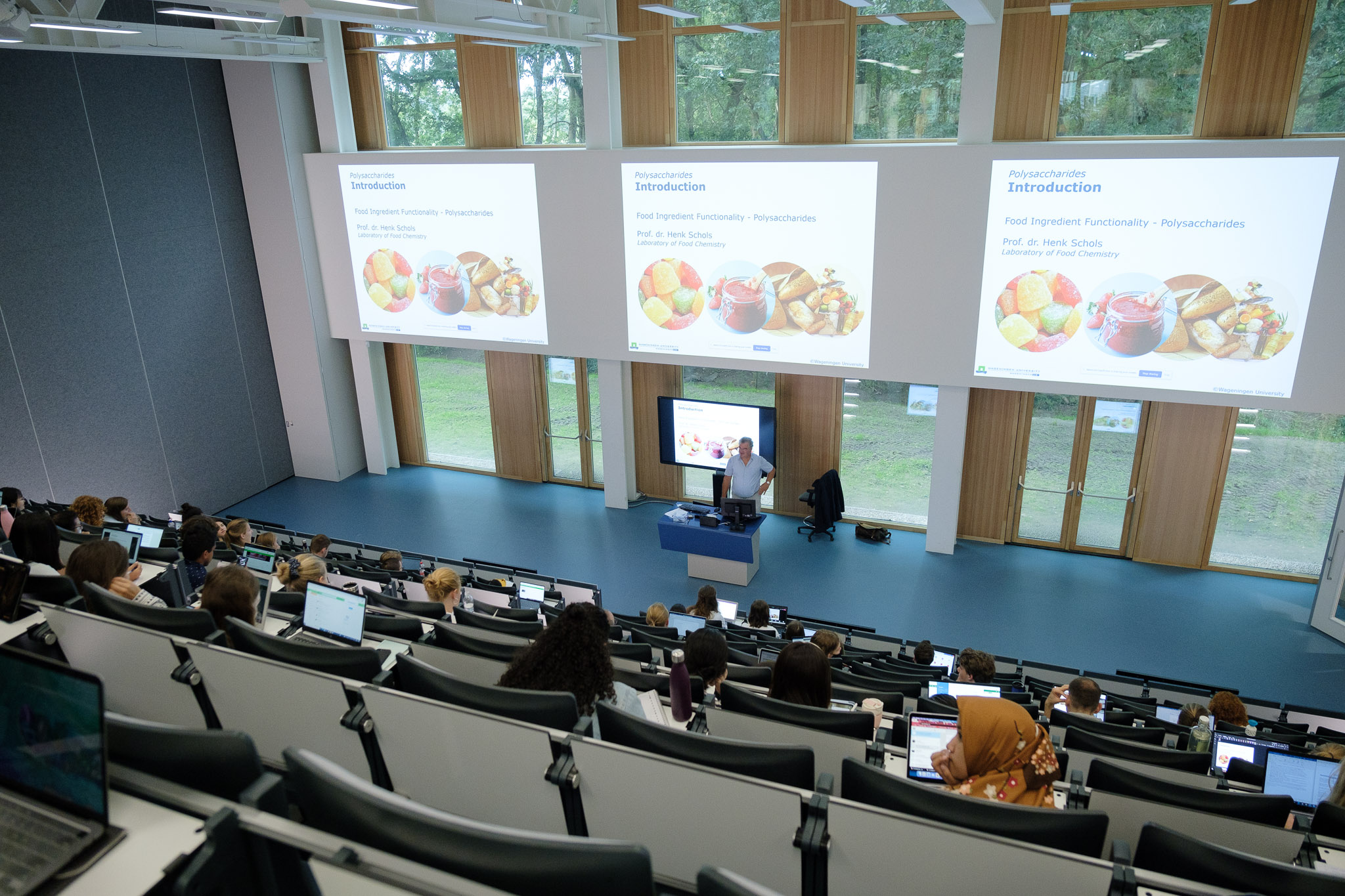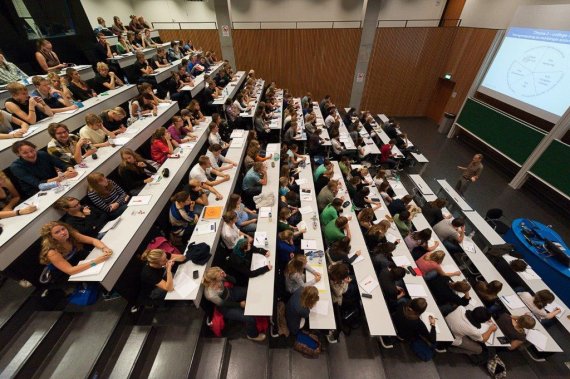The Excellent Education Prizes (and the Teacher of the Year award) were conferred on Tuesday, 20 June. Four course coordinators took home a trophy.
A total of sixteen courses were nominated for an Excellent Education Prize. The prizes were given in four categories: basic courses, advanced courses, special courses and large courses. Former dean of education Tiny van Boekel headed the jury, made up of seven individuals, among whom both students and professors.
Before the start of the award ceremony, the jury shared some of its findings. They noticed, for example, that courses in which theory and practice are linked are generally well-appreciated by students. Special courses such as African Philosophy and Anthropology of Basic Nature Skills obtain high scores, indicating that, if it were up to students, such topics should be given a more significant role in the curriculum. Finally, the jury found that student-assistants are often te recipients of praise in the evaluations: ‘A key quality factor’ and ‘invaluable in connecting students and teachers’.
Winners
After a short presentation of all the nominees, the Excellent Education Prize was awarded in each category to (one of) the course coordinator(s) or their representative.
The award in the category basic courses went to the Econometrics course by Koos Gardebroek. Students frequently perceive the subject of econometrics as difficult and intimidating, says the jury. However, Gardebroek succeeds in demonstrating its relevance to everyday issues, making it fun. ‘Extremely motivated teachers and the right mix of lectures, working groups and practicals stimulate students to actively engage and think critically.’
Advanced courses
The course in The Politics of Healthy and Sustainable Foods, by Jeroen Candel, Pieter van ’t Veer, Inge Brouwer and Ilse de Jager, received the award in the advanced courses category. A social sciences course for students of life sciences, according to the jury report, in which students are challenged to combine expertise from their domain with political aspects of healthy and sustainable foods. Students develop critical thinking and debating skills.
Special courses
The specialisation course Anthropology of Basic Nature Skills: Combining Theory and Practice Through Relational Learning received the award in the category special courses. Although it may, at first, not appear very academic to learn how to make a fire, these practical skills that are taught by Koen Arts and Rianne Kat contribute to absorbing theoretical information, says the jury. The course often helps students realise that limiting oneself to intellectual knowledge that has lost its connection with practical reality results in a limited perspective.
Large courses
Reproduction of Plants by Tijs Ketelaar and Kris van ’t Klooster wins in the category large courses. Students are enthusiastic about the coherence between lectures and practicals and the teachers’ enthusiasm and commitment. The field trip to one of the teachers’ gardens to study several aspects of plant reproduction was much appreciated.

 Photo Luuk Zegers
Photo Luuk Zegers 

